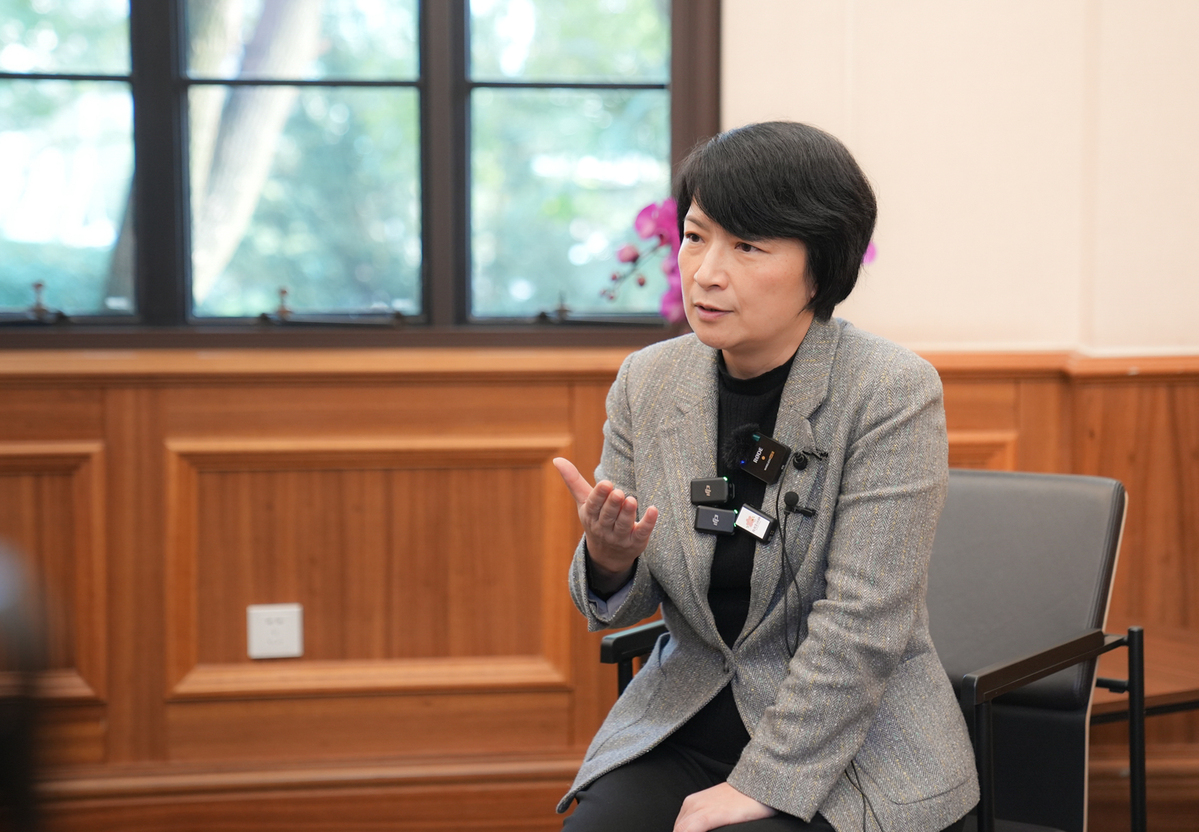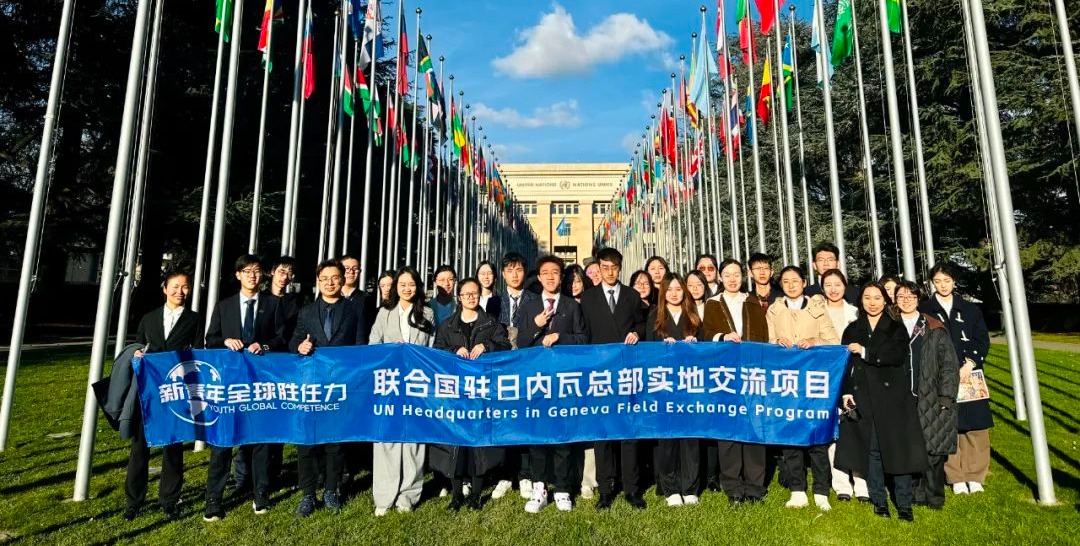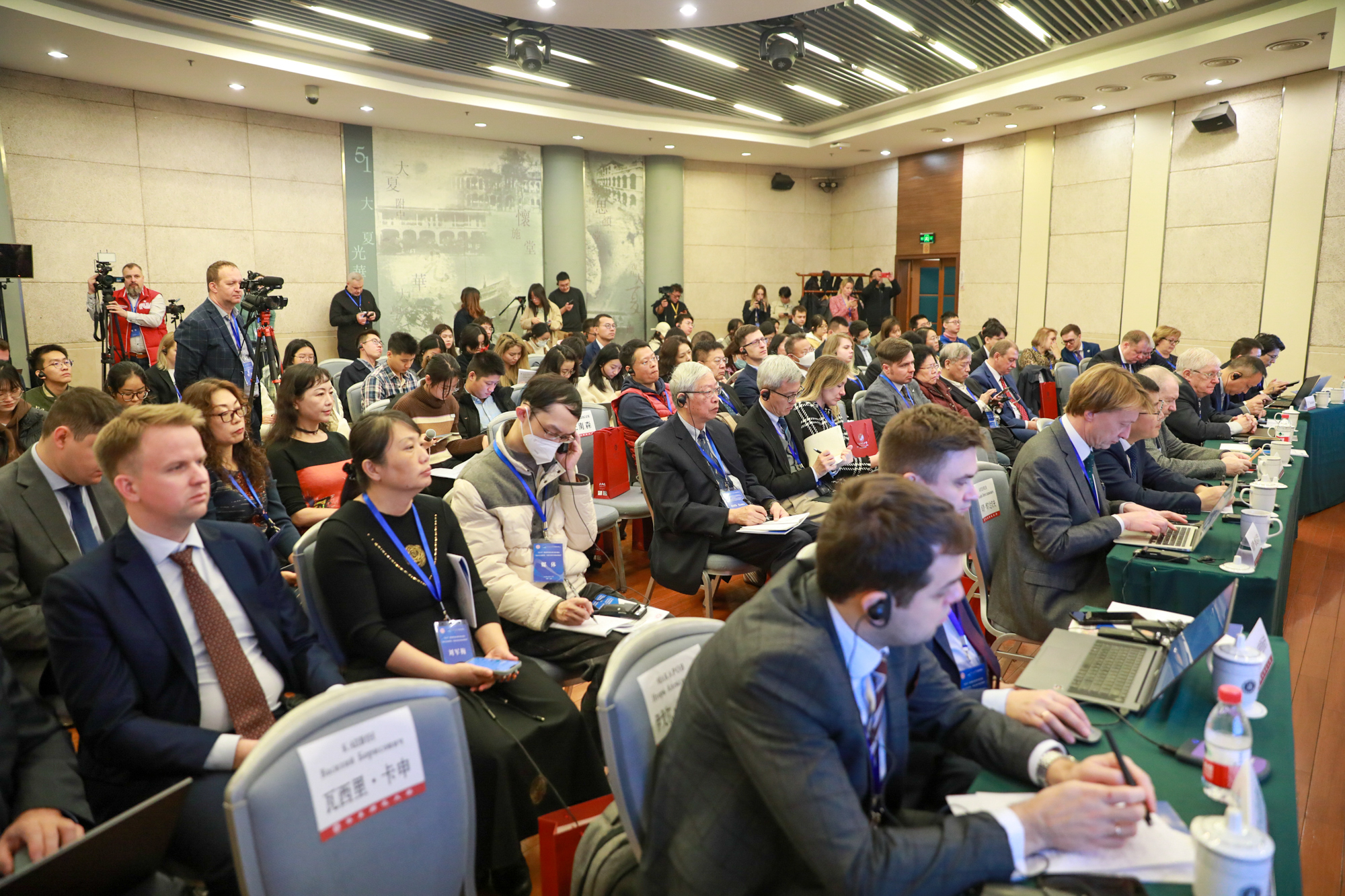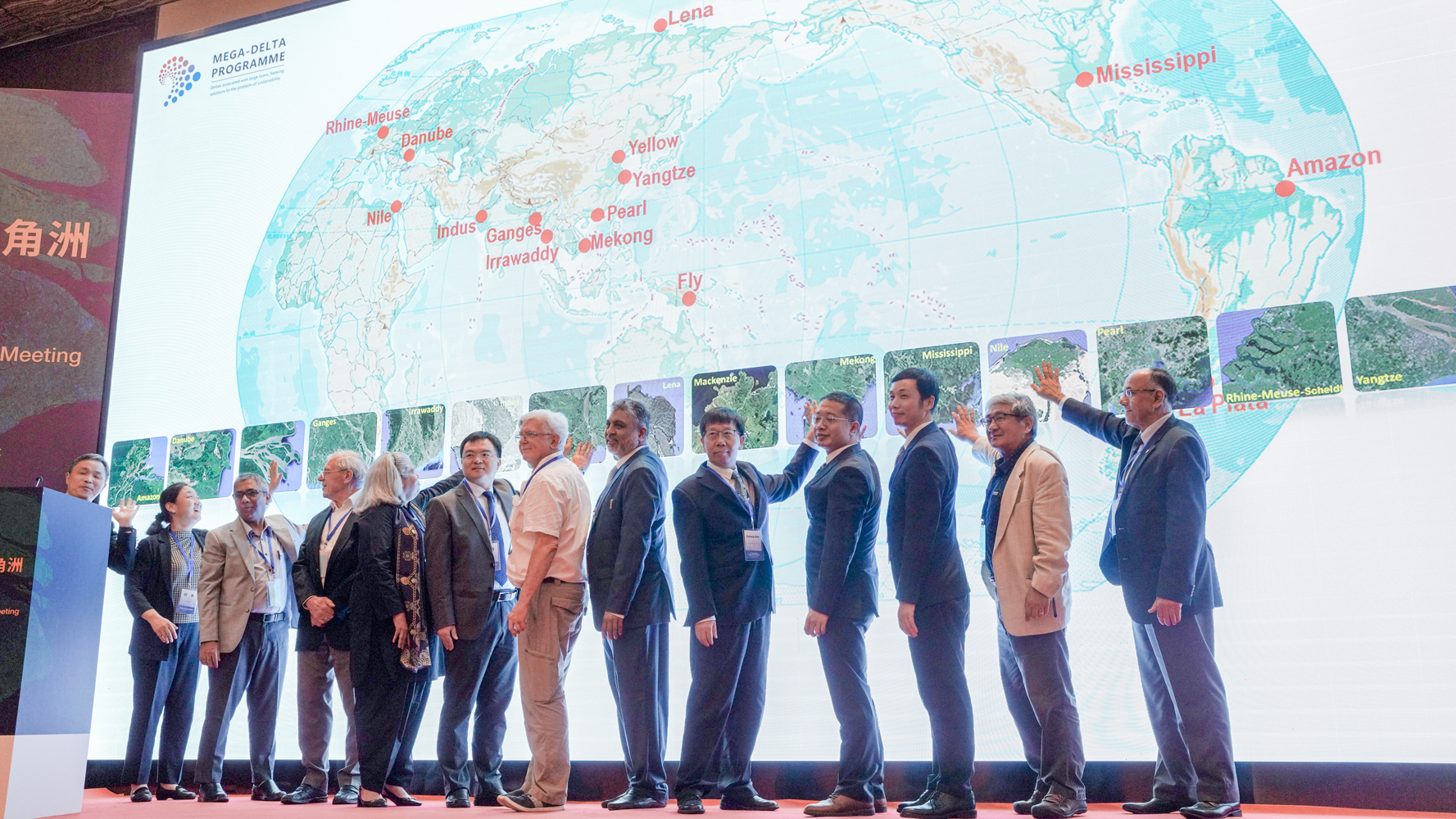# Hot Search #
The Institute of Electrical and Electronics Engineers (IEEE) Symposium on VLSI (Very-large-scale integration) Technology and Circuits, a highly regarded international forum in the field of semiconductor devices and processes, has recognized the groundbreaking research conducted by Professor Yan Cheng and her team from East China Normal University (ECNU). The team's latest findings, titled "Polar axis orientation control of hafnium-based ferroelectric capacitors with in-situ AC electric bias during rapid thermal annealing," were presented at the 2024 IEEE Symposium on VLSI Technology & Circuits held in Hawaii, USA, from June 16 to 20, 2024.
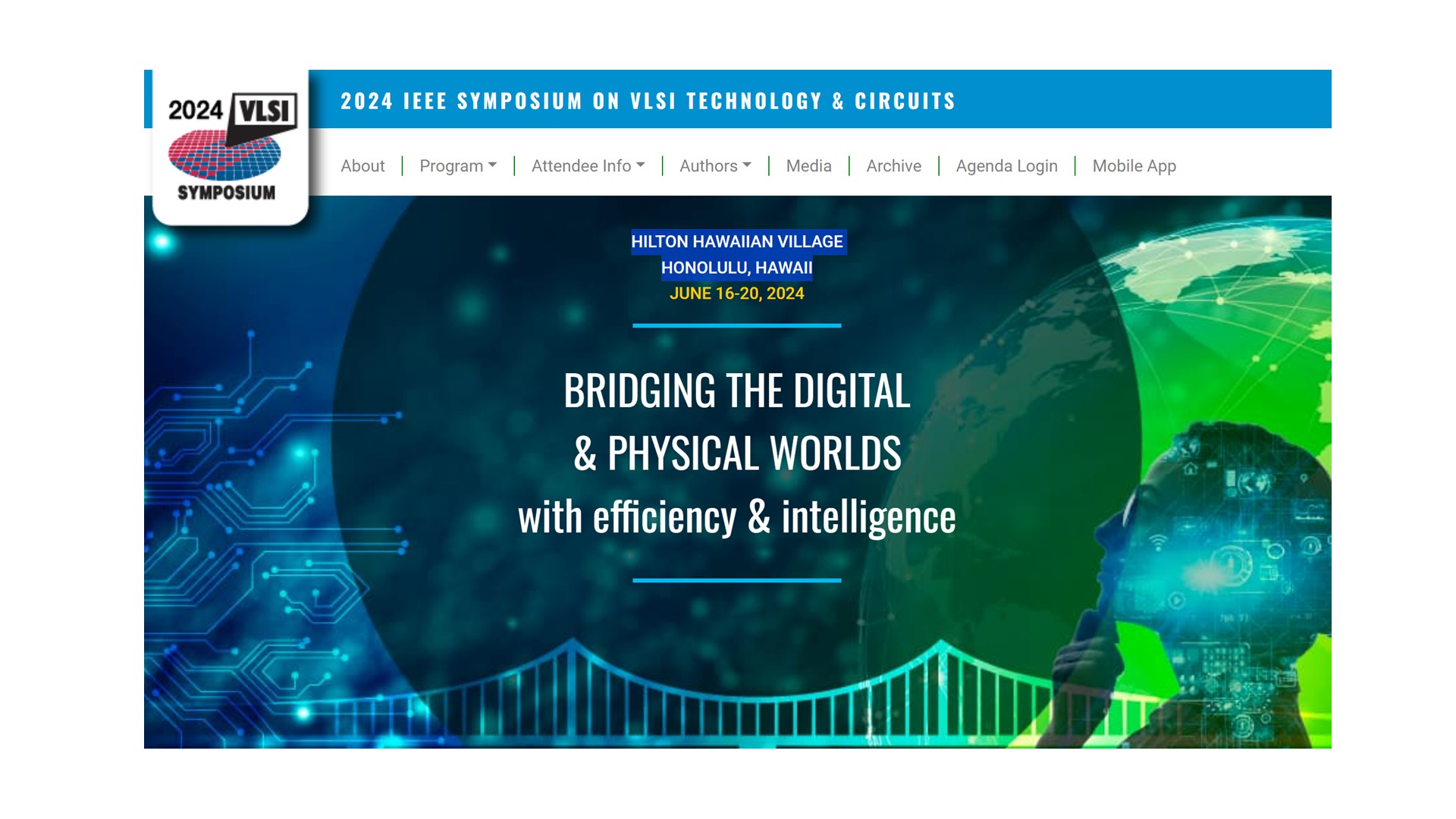
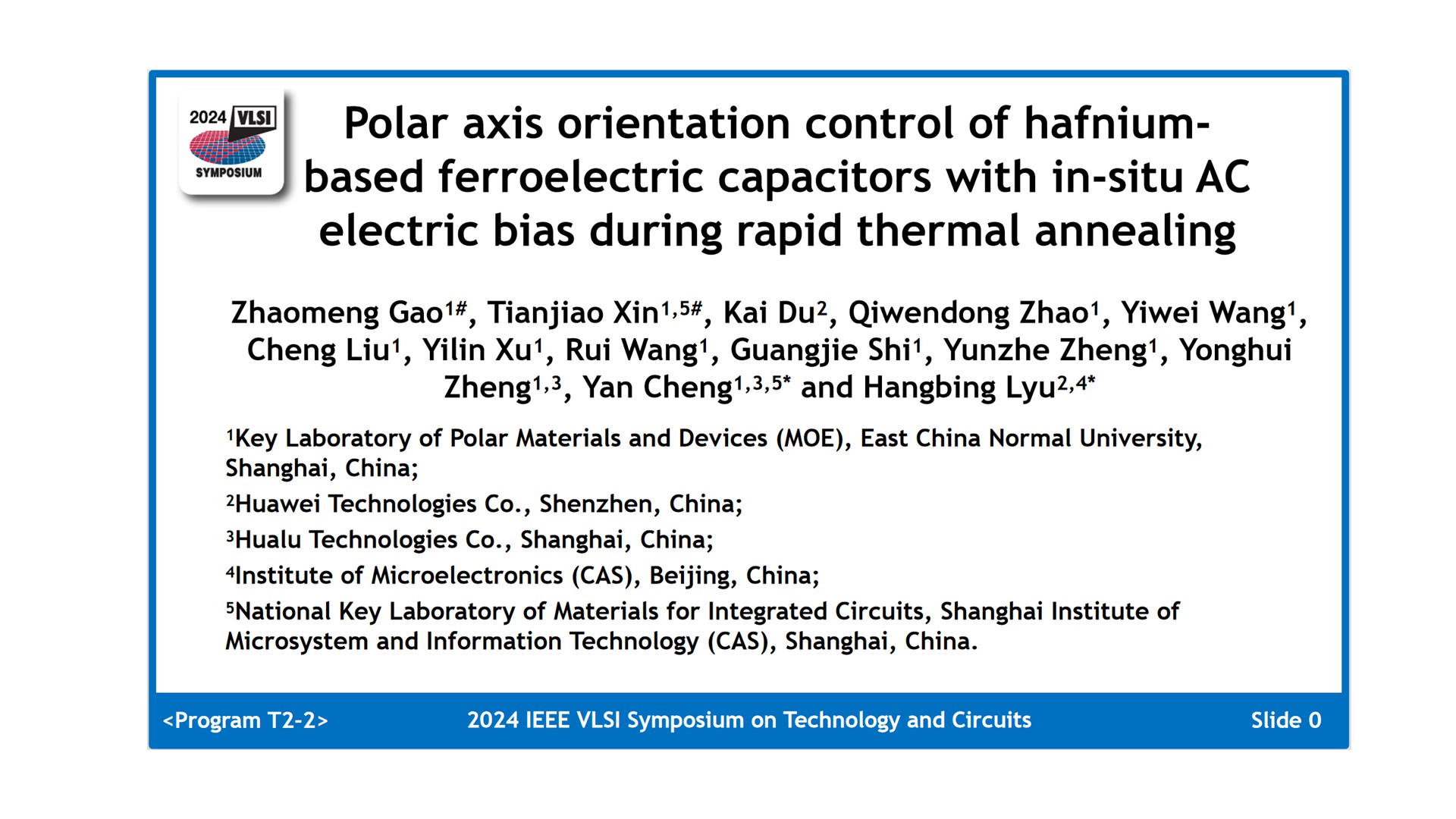
The paper, co-authored by postdoctoral researcher Zhaomeng Gao and doctoral student Tianjiao Xin, under the guidance of Professor Yan Cheng and Researcher Hangbing Lyu from the Institute of Microelectronics of the Chinese Academy of Sciences, marks another significant milestone for ECNU's polarization materials and devices research group.
To date, Professor Yan Cheng's research team at the Key Laboratory of Polar Materials and Devices (MOE) has published five papers in top-tier conferences such as VLSI and the International Electron Devices Meeting (IEDM), including ECNU's first-ever VLSI publication in 2021 and its first IEDM paper in the same year.
The founders of the Symposia, Professors Shoji Tanaka and Walter Kosonocky, first organized the VLSI Technology Symposium in 1981 to provide an opportunity for world’s top technologists to engage in an open exchange of ideas on what was quickly becoming a revolution in the world’s industrial capability. Since then, the Symposium has been held annually and has developed into an important and valuable event for people working in the VLSI industry.
The Symposium featured selected presentations and panel sessions as well as advanced VLSI technology developments, innovative circuit designs, and the applications they enable, such as artificial intelligence, machine learning, IoT, wearable/implantable biomedical applications, big data, cloud / edge computing, virtual reality (VR) / augmented reality (AR), robotics, and autonomous vehicles.
More:https://www.vlsisymposium.org/
